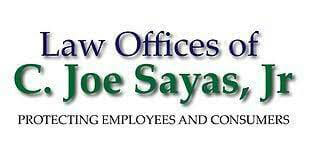What if you’re asked to sign a severance form at termination?

A separation or severance agreement or release is a contract between an employer and an employee who is about to leave the employer’s employment. In a typical agreement, the employer agrees to give the employee additional compensation (the severance pay) in exchange for the outgoing employee’s agreement not to sue the employer for any employment-related claims such as wrongful termination or back wages.
Employers are notrequired by law to provide any severance pay to their employees, regardless of whether the end of employment is due to a resignation, a firing, or a layoff. Even if an employee has worked for several years for the same employer, the employer is still not obligated to provide a severance pay if the employer decides to fire such a long-time employee. Most employers do not sponsor formal severance pay plans.
However, some employers offer formal severance pay plans that provide conditions for eligibility. An employer, for example, may provide severance pay to long-time employees in the event of a layoff. This means severance pay is a matter of agreement between the employer and the employee.
A severance pay is usually calculated according to a specific formula, often based on the employee’s length of service. An employee may try to negotiate for more severance pay than what is being offered, especially if the employee has been with the company for many years, has an excellent service record, or has provided increased value to the employer’s business. An employee may also negotiate how to receive the severance pay, for example, as a lump sum payment, as a salary continuation for a specific period, or as periodic payments. Each method has an advantage and a pitfall.
Most importantly, before signing or negotiating for a severance agreement, or signing any kind of release after a termination, an employee should keep in mind the following things:
- Has the employer paid all hours worked by the employee, including overtime?
- Has the employer paid the employee for meal or rest breaks that were not provided to the employee?
- If the employee is entitled to vacation, has the unused vacation been paid?
- If the employee is being terminated, what is the reason for the termination? If an employer fired an employee for a discriminatory or retaliatory reason, the employee may be entitled to damages.
- Does the severance agreement protect the employee from any potential claims for wrongful behavior or harassment that might be brought by the employer?
So, should you sign a severance package? It depends.If you had been paid correctly for all hours worked, if you received all your meal and rest periods, and if you have no issues regarding your termination, then a severance package is a generous and welcome benefit.
But if you were not paid all your hours worked, including overtime, and you were not provided meal and rest periods, or the termination was wrongful – then a severance package may be a way for your employer to stop you from asserting your rights and seeking remedies in court. If this is the case, you would be in a better position to consult with a knowledgeable employment attorney before you sign anything.
Lastly, employers mustimmediatelypay all compensation due to the employee at the time of termination. It is illegal for employers to threaten to not pay terminated employees for work already performed unless the employees sign some kind of “release.” A release signed by the employee under these circumstances may not be enforced.
The Law Offices of C. Joe Sayas, Jr. welcomes inquiries about this topic. All inquiries are confidential and at no-cost. You can contact the office at (818) 291-0088 or visit www.joesayaslaw.comor our Facebook page Joe Sayas Law. [C. Joe Sayas, Jr., Esq. is an experienced trial attorney who has successfully recovered wages and other monetary damages for thousands of employees and consumers. He was named Top Labor & Employment Attorney in California by the Daily Journal, consistently selected as Super Lawyer by the Los Angeles Magazine, and is the recipient of PABA’s Community Champion Award.]

